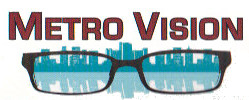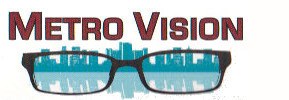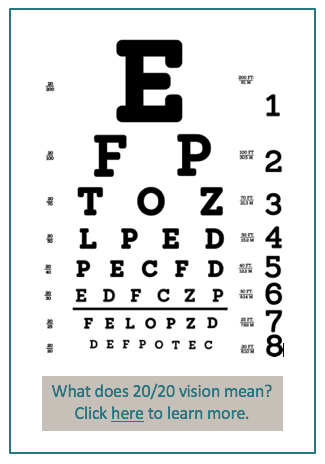Metro Vision Eye Exams
What to Expect at Your Next Metro Vision Visit
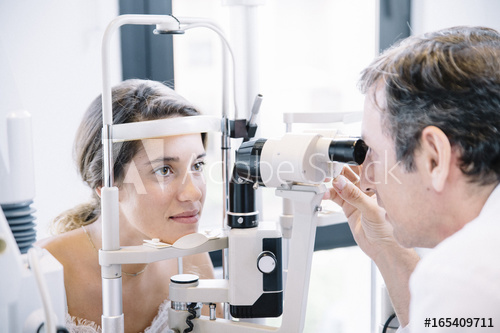
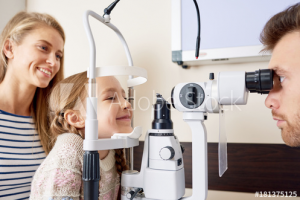
At Metro Vision, your eye care physician may include all or some of the following during your thorough eye exam:
Case History: Vision and health history, medications, symptoms of vision problems and other background information will be requested by your Metro Vision optician.
Visual System Analysis: With the support of medical instruments and tests, your Metro Vision eye doctor will perform an internal and external exam of your visual system including:
- Retina
- Optic Nerve
- Blood Vessels
- Muscles
- Pupils
- Cornea
- Lens
- Iris
- Conjunctiva
- Eyelids
- Eyelashes
Through this analysis, the health of your eyes will be assessed for signs of:
- Glaucoma
- Cataracts
- Corneal diseases
- General Systemic Diseases:
- Diabetes
- High Blood Pressure
- Neurological Disorders
Refractive Evaluation: Your Metro Vision optomatrist will determine your ability to see clearly with several tests and decide if prescription eyewear is needed.
Binocular Evaluation: Your Metro Vision optician will conduct tests of your binocular function (the ability of the eyes to work together at both near and far distances).
Diagnosis and Treatment Plan: A final diagnosis will be made and a treatment plan discussed with you. This plan may include:
- Status of Your Vision
- Systemic Health Problems
- Corrective Eyewear, if needed
- Vision Therapy, if needed
Your Metro Vision Optician
It’s very common for patients to come to their eye exam and not understand how their lifestyle can affect their eye health. The more eye doctors know about their patients, the better they can prescribe the right eyewear and treat visual problems.
So, what should you tell or ask your eye doctor?
Consider these tips for making the most of your next eye exam:
- If there is a part of your diagnosis, eye exam, or treatment that you don’t understand, talk to your doctor about it.
- It’s extremely helpful if your eye doctor knows your health background before your visit. Call the office and speak to someone before your appointment.
- Have a list of medicines you use, including over-the-counter drugs as well as prescription meds. Both types of medicines can affect your eye health and diagnosis.
- Be sure to report any current difficulties you are having with your vision, including but not limited to:
- Blurring
- Dry Eyes
- Double Vision
- Problems with Night Vision
- Eye Strain
- It’s also good for your optician to know of any chronic health conditions such as high blood pressure, diabetes or surgeries.
- Your family health history can have an effect on your eyes as well. Be sure to mention anything you think might be important.
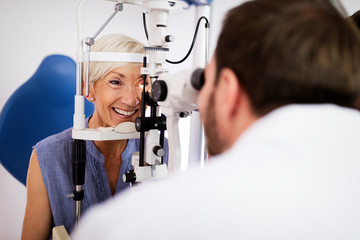
7. Your lifestyle can also affect your eyesight. Be sure to tell your eye doctor about your job. What you do at your job (for example, do you use a computer all day), the lighting in your office, and irritants like chemicals or smoke are important factors.
8. Your leisure activities such as sports can also have an effect on your vision. These small details are more important than you may realize.
Contact Metro Vision’s office for your next thorough eye examination.
Metro Vision Office Hours:
MONDAY: closed
TUESDAY: 10 am – 8 pm
WEDNESDAY: 10 am – 3 pm
THURSDAY: 10 am – 8 pm
FRIDAY: 10 am – 6 pm
SATURDAY: open every other Saturday
(please call ahead)
SUNDAY: closed
Call, Email or Fax
Phone: (586) 286-7200
Fax: (586) 286-4144
Email: metrovision@sbcglobal.net
